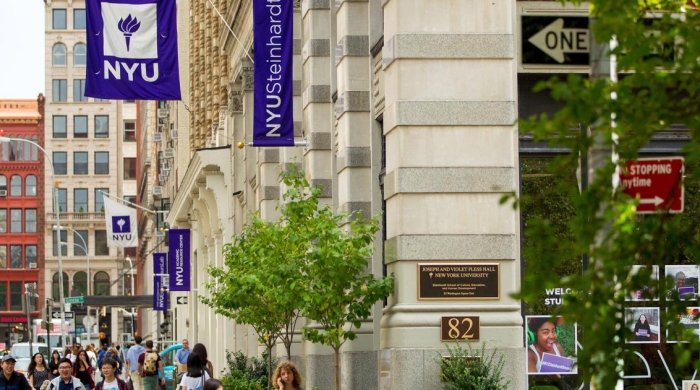Lauren Mims, assistant professor of applied psychology, has been awarded a $1.05 million grant from the US Department of Health and Human Services's Office of Minority Health to help support the mental health of, and prevent suicide in, Black youth.
This research is a direct response to a call set forth in 2019 by the Congressional Black Caucus (CBC) to help curtail the worrying rise in suicide rates for Black children and teenagers. Data from a report released by the CBC Taskforce on Black Youth Suicide and Mental Health shows that suicide is the second leading cause of death for Black youth ages ten to nineteen years old, and that the suicide death rate among Black youth is increasing faster than for any other racial or ethnic group.
“This is an alarming issue, and it deserves focus,” says Mims. “The result of structural racism is inequitable health outcomes for Black communities, and Black children and adolescents are particularly vulnerable. We’re excited about this grant because we’re identifying pathways that can lead to their thriving.”
As researchers, we should all work deeply in and with communities instead of ‘on’ communities to ensure that we’re listening to and responding to their wants and needs, rather than act based on what we assume to be true.

Throughout this three-year project, Mims and her co-PI, Associate Professor Renae Mayes at the University of Arizona, will work in collaboration with Richmond Public Schools in Virginia, where the district’s enrollment is approximately 90 percent minority, and more than 55 percent of students identify as Black.
The school system is currently using a multi-tiered system of supports. Due to a rise in incidents that impact students' mental health, the current focus is largely on crisis management, but Mims and Mayes would like to work together with Richmond Public Schools and the community to focus on preventative efforts in which students receive culturally grounded and accessible mental health support.
“Our collaboration with the school system is key,” says Mims. “We want to celebrate and amplify the work they’re doing by helping build capacity and expertise. As researchers, we should all work deeply in and with communities instead of ‘on’ communities to ensure that we’re listening to and responding to their wants and needs, rather than act based on what we assume to be true.”
Prior to joining Steinhardt in 2022 as part of the NYU Faculty Cluster Hiring Initiative, Mims served in the Obama Administration as assistant director of the White House Initiative on Educational Excellence for African Americans. This new research stems from her previous work at the Initiative, where one of the goals was to create a whole-child approach to support the mental health of Black children.
Overall goals of the grant include identifying the mental health needs of Black youth; preventing suicidal ideations, attempts, and deaths; and implementing policies that create multi-tiered support systems for students. A larger hope is to be able to develop a framework that could be applied in other communities as well.
“I think about Black children walking into school and knowing what it feels like to be mentally well and that they have access to people who care about them and their wellbeing in every school,” says Mims.
Related Articles
NYU Steinhardt Creates Research Hub to Support Diverse Faculty, Examine Inequities
The Justice and Belonging in Development and Education Hub is part of an NYU initiative to elevate innovative scholarship by underrepresented faculty.
NYU Steinhardt Welcomes New Faculty
NYU Steinhardt's newest faculty members include educators, scholars, poets, activists, writers, artists, and more.
In Solidarity Conversations: A YPAR Approach to Research-Practice Partnerships
Incoming Assistant Professor of Applied Psychology and the Institute of Human Development and Social Change (IHDSC) Faculty Affiliate, Dr. Lauren C. Mims, partnered with the National Crittenton and the National Collaborative of Young Women’s Initiatives (National YWI) to produce an incredible report on their In Solidarity Conversations.



